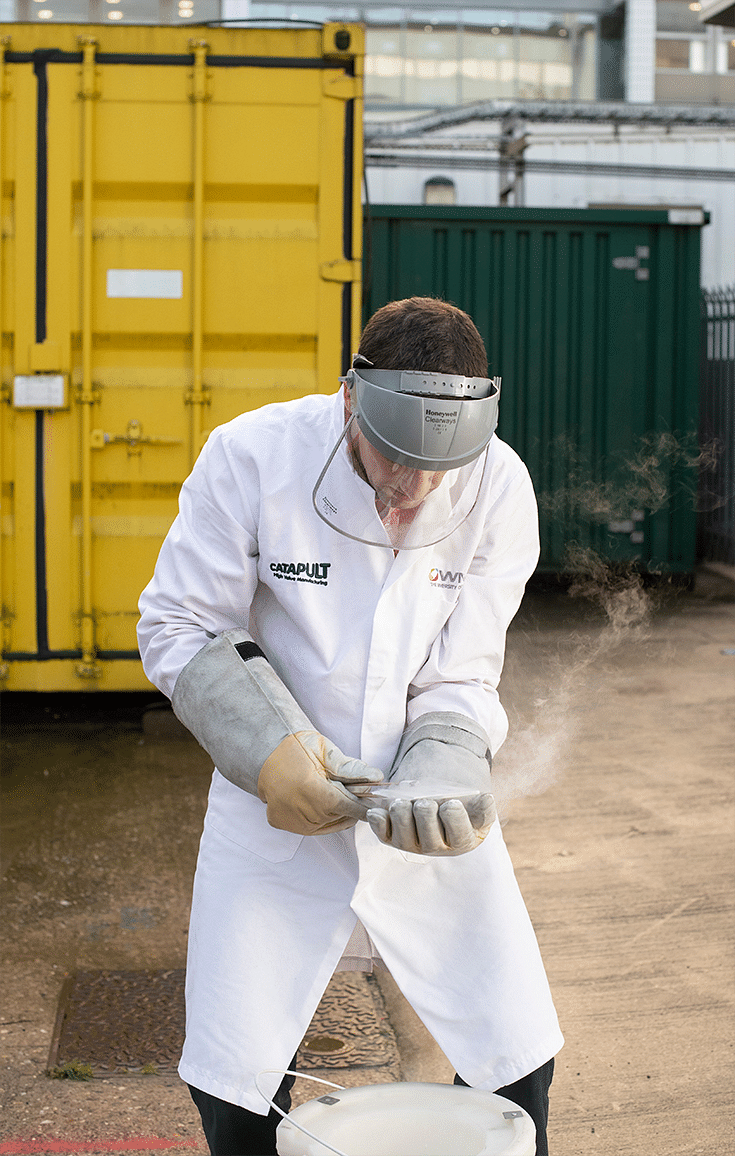Tech breakthrough: Freezing Li-ion car batteries for safer transportation
Researchers from WMG at the University of Warwick in collaboration with Jaguar Land Rover engineers have been able to freeze damaged or defective lithium-ion batteries with liquid nitrogen, which would not require expensive explosion-proof containers
Currently transporting damaged and defective car batteries is an expensive process as they need to be placed in an explosion proof box which costs lakhs of rupees. However, researchers from WMG at the University of Warwick in collaboration with Jaguar Land Rover engineers have been able to freeze batteries with liquid nitrogen.
An explosion-proof box to transport a typical Tesla-sized battery costs 10,000 euros (Rs 790,000) and a further 10,000 euros for the UN accreditation. However, the ability to transport them in plastic containers, which cost a couple of hundred pounds (rs 18,500) has been made more accessible thanks to researchers from WMG at the University of Warwick.
In the paper, ‘Cycle life of lithium ion batteries after flash cryogenic freezing’ published in the Journal of Energy Storage, researchers highlight that cryogenic freezing does not reduce a lithium ion battery’s energy capacity or affect cycle or service life, and could be transported in a safer way.
As the sales of electric vehicles increases, there is more concern for the transportation of damaged and defective lithium ion battery packs. Currently, it is an expensive process, as they are put in an explosion-proof box, an expensive which EV manufacturers are picking up the tab.
Explosion boxes are used to contain the battery in case it goes into thermal runway, an overheating condition which can lead to violent explosions and toxic gases being released. However, being able to cryogenically flash freeze the batteries completely removes the risk of an explosion, and could therefore mean they can be transported safely in a plastic box.
Researchers who were part of the ELEVATE project funded by ESPRC, Catapult and supported by Jaguar Land Rover tested the batteries activity before they froze cells with liquid nitrogen and after, they also drove nails through the frozen cell to test the safety of them, and managed to show that their performance was not effected after freezing.
When being transported batteries will have to be kept in a lorry at -35 degrees, however the amount of packaging is significantly less than explosion proof boxes, making the process more sustainable.

Dr Thomas Grandjean from WMG, University of Warwick handling the battery cell frozen by liquid nitrogen.
According to Dr Thomas Grandjean from WMG, at the University of Warwick, “Transporting damaged and defective batteries is an expensive and unsustainable process, however being able to freeze them with liquid nitrogen could save thousands of pounds and help electric vehicle manufacturers be more sustainable.
“We tested the batteries in the most extreme abuse conditions, such as driving nails through the cells and inducing external short circuits, proving that the freezing process is effective and safe.”
All images: WMG University of Warwick
RELATED ARTICLES
Autoliv Plans JV for Advanced Safety Electronics With China’s HSAE
The new joint venture, which is to be located strategically near Shanghai and close to several existing Autoliv sites in...
JLR to Restart Production Over a Month After September Hacking
Manufacturing operations at the Tata Group-owned British luxury car and SUV manufacturer were shut down following a cybe...
BYD UK Sales Jump 880% in September to 11,271 units
Sales record sets the UK apart as the largest international market for BYD outside of China for the first time. The Seal...






 By Autocar Professional Bureau
By Autocar Professional Bureau
 02 Dec 2019
02 Dec 2019
 12557 Views
12557 Views










 Ajit Dalvi
Ajit Dalvi




